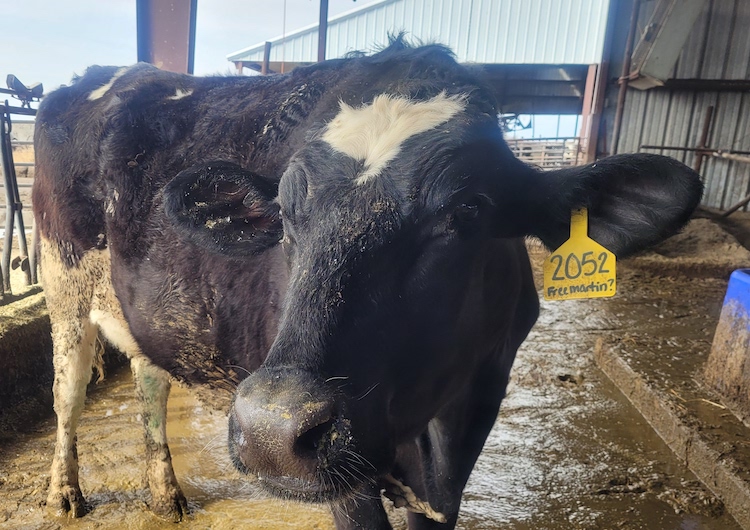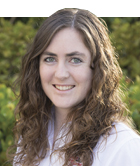
Sometimes on the farm, I just need a bit of good news. For those of you who dairy or have in the past, you know what I mean. A little pick-me-up of good news just hits the spot.
About 10 months ago, we had one of those pleasant surprises on the farm. We had a yearling freemartin heifer that we were raising out for beef. She was penned up with some of our steers, and one afternoon they were eagerly mounting her as an obvious sign of heat.
Of course, this didn’t guarantee our little freemartin would breed, but it encouraged us to check her to see if she was fertile. The vet was by the next week, and he palpated her, telling us that she seemed to have all the right reproductive organs and would be worth trying to breed.
Frankly, you can find more detailed and accurate information on what a freemartin is elsewhere on the internet, but briefly, a freemartin heifer occurs when a heifer is born twin to a bull. The developing male organs stunt female organ growth and often result in a missing or malformed reproductive systems in heifers. Only about 8% of heifers born twin to a bull are fertile and able to reproduce. My dad tells me this is only the second time in his career that we’ve had a fertile heifer born twin to a bull.
The point of my little story is the gift that the freemartin heifer has been. After a single straw of semen, Pria was confirmed pregnant and due just a few weeks ago at the beginning of March. She safely delivered a heifer calf and has smoothly joined the milking herd.
As I walk through the herd today and see her 2052 ear tag with a “freemartin?” written below her number, I am reminded that sometimes things go right on the farm. Sometimes we are given little gifts to brighten the cold winter days and remind us of why we do all this.

The author is a dairy farmer in Kansas and a former associate editor at Hoard’s Dairyman. Raised on a 150-cow dairy near Valley Center, Kansas, Maggie graduated from Kansas State University with degrees in agricultural communications and animal sciences.







